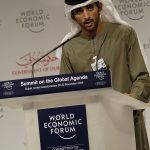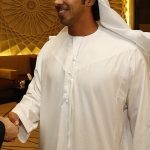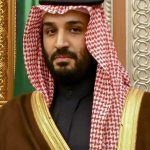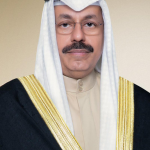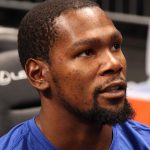Sheikh Mohammed bin Rashid al Maktoum is a prominent figure on the global stage, known for his visionary leadership and transformative impact on Dubai and the broader United Arab Emirates (UAE). His net worth reflects his influence and the vast economic resources at his disposal. This article delves into Sheikh Mohammed’s wealth, early life, family background, personal attributes, relationship status, and illustrious career, offering a comprehensive insight into one of the most influential leaders in the Middle East.
Sheikh Mohammed bin Rashid al Maktoum Net Worth
Sheikh Mohammed bin Rashid al Maktoum net worth of approximately $14 billion epitomizes his immense economic and political sway. Born into a family of considerable wealth and influence, Sheikh Mohammed’s financial standing is underpinned by a blend of inherited assets, state leadership positions, and astute investment choices. His dual roles as the ruler of Dubai and the Vice President and Prime Minister of the UAE afford him unparalleled access to and control over vast economic resources.
Central to Sheikh Mohammed’s financial portfolio is the Dubai Holding conglomerate, a sprawling entity with interests spanning diverse sectors such as real estate, hospitality, and telecommunications. Under his stewardship, Dubai Holding has emerged as a powerhouse, driving economic growth and innovation within the emirate and beyond. Through strategic acquisitions, partnerships, and bold development projects, Sheikh Mohammed has propelled Dubai onto the global stage as a premier destination for business and investment.
Beyond his direct involvement in business ventures, Sheikh Mohammed’s leadership has played a pivotal role in shaping Dubai’s economic landscape. His visionary initiatives, including the establishment of free zones, investment incentives, and infrastructure development projects, have attracted multinational corporations and investors, fueling the city’s rapid expansion and diversification.
Moreover, Sheikh Mohammed’s strategic vision extends beyond the confines of Dubai, influencing broader regional and global economic dynamics. As a key figure in the United Arab Emirates’ leadership, he has spearheaded initiatives aimed at enhancing the country’s competitiveness, fostering innovation, and diversifying its economy away from reliance on oil.
Sheikh Mohammed bin Rashid al Maktoum net worth encapsulates not only his personal wealth but also his profound impact on the economic landscape of Dubai, the UAE, and the wider Middle East region. Through visionary leadership, strategic investments, and unwavering commitment to progress, he has cemented his legacy as a transformative figure in the realms of business and politics.
Sheikh Mohammed bin Rashid al Maktoum Early Life and Family
Born on July 15, 1949, in Dubai, Sheikh Mohammed is a member of the Al Maktoum family, the ruling dynasty of Dubai since 1833. His father, Sheikh Rashid bin Saeed al Maktoum, was a key figure in the formation of the UAE and played a pivotal role in Dubai’s early development. Sheikh Mohammed was raised in an environment that emphasized leadership, responsibility, and public service, which deeply influenced his later life and career.
Educated in the United Kingdom, Sheikh Mohammed attended the prestigious Bell Educational Trust’s English Language School and later the Mons Officer Cadet School in Aldershot. His time in the UK provided him with a broader perspective on governance and international relations, which he would later apply to his leadership of Dubai.
Sheikh Mohammed bin Rashid al Maktoum Height, Weight
Sheikh Mohammed bin Rashid al Maktoum, the ruler of Dubai and Vice President and Prime Minister of the United Arab Emirates, has a notable physical stature. Standing at around 5 feet 10 inches (178 cm) tall, he possesses a commanding presence that befits his position of leadership. This height places him slightly above the average height for men in many parts of the world, contributing to his authoritative demeanor when engaging in diplomatic or public appearances.
In terms of weight, Sheikh Mohammed maintains a healthy physique, tipping the scales at approximately 165 pounds (75 kg). This weight aligns with standard health guidelines for someone of his height, indicating a commitment to physical well-being despite the demands of his busy schedule and responsibilities as a leader.
The combination of his height and weight not only reflects his dedication to personal health but also adds to his overall image as a powerful figure on the global stage. As a leader overseeing various aspects of Dubai’s development and playing a significant role in shaping the UAE’s policies, Sheikh Mohammed’s physical presence complements his reputation for decisiveness and vision.
Furthermore, his stature may also play a symbolic role in projecting strength and stability to both his constituents and the international community. Whether engaging in diplomatic negotiations, addressing his people, or participating in ceremonial events, Sheikh Mohammed’s height and weight contribute to the perception of him as a formidable and influential leader in the Middle East and beyond.
Sheikh Mohammed bin Rashid al Maktoum Relationship Status and Personal Life
Sheikh Mohammed’s personal life is marked by his multiple marriages and large family. He has numerous children, many of whom hold significant roles within the UAE’s governance and business sectors. His most prominent wife is Princess Haya bint Hussein, daughter of King Hussein of Jordan, whom he married in 2004. Their marriage, which brought together two influential royal families, ended in 2019. Despite the public nature of his personal life, Sheikh Mohammed maintains a degree of privacy, particularly regarding his children’s upbringing and education.
Beyond his family, Sheikh Mohammed is known for his passion for poetry, horse racing, and philanthropy. He is an accomplished poet, writing primarily in classical Arabic, and his works often reflect his deep connection to his heritage and culture. His passion for horse racing is internationally recognized, with his Godolphin stables winning numerous prestigious races globally. Moreover, his philanthropic efforts, particularly through the Mohammed bin Rashid Al Maktoum Foundation, focus on education, healthcare, and humanitarian relief, underscoring his commitment to global welfare.
Sheikh Mohammed bin Rashid al Maktoum Career
Sheikh Mohammed bin Rashid al Maktoum’s career is a remarkable journey of leadership and visionary governance that has significantly shaped Dubai and the UAE. His career can be divided into distinct phases, each marked by strategic initiatives and transformative projects.
Early Career
Sheikh Mohammed bin Rashid Al Maktoum embarked on his early career trajectory in the 1970s, aligning with the inception of the United Arab Emirates (UAE). His initial foray into public service commenced in 1971 when he assumed the pivotal role of the UAE’s inaugural Minister of Defence. Tasked with this responsibility at a relatively young age, Sheikh Mohammed undertook the formidable duty of overseeing the nation’s military apparatus. His tenure as Minister of Defence was characterized by a concerted focus on fortifying and modernizing the UAE’s armed forces, thereby laying down the bedrock for the country’s security and stability.
In this capacity, Sheikh Mohammed played an instrumental role in shaping the nascent nation’s defense infrastructure and strategies, navigating through the complexities of safeguarding a newly formed state in a region marked by geopolitical intricacies. His adept leadership during the formative years of the UAE underscored his commitment to ensuring the safety and sovereignty of the burgeoning nation, cementing his stature as a pivotal figure in its foundational journey.
Throughout this period, Sheikh Mohammed’s vision and acumen were instrumental in shaping the trajectory of the UAE’s defense apparatus, setting the stage for its subsequent growth and resilience in the face of evolving regional dynamics. His strategic initiatives encompassed not only bolstering military capabilities but also fostering partnerships with key international allies to enhance the UAE’s defense capabilities and ensure its strategic positioning on the global stage.
Under Sheikh Mohammed’s stewardship, the UAE’s armed forces underwent significant modernization, incorporating cutting-edge technologies and training methodologies to effectively address emerging security challenges. His visionary leadership laid the groundwork for the transformation of the UAE’s military into a modern, agile, and capable force, capable of safeguarding the nation’s interests in an increasingly complex geopolitical landscape.
In addition to his contributions to the defense sector, Sheikh Mohammed’s early career also saw him actively involved in various other aspects of public service, including education, infrastructure development, and economic diversification. These multifaceted endeavors underscored his holistic approach to nation-building, wherein defense and security were integral components of a broader vision aimed at ensuring the UAE’s prosperity and resilience in the face of internal and external challenges.
Transformative Leadership of Dubai
Ascending to the role of Crown Prince of Dubai in 1995, Sheikh Mohammed’s leadership marked the beginning of Dubai’s transformation into a global city. He spearheaded numerous ambitious projects aimed at diversifying Dubai’s economy away from oil dependence. His vision was to make Dubai a hub for tourism, finance, and trade.
Under his guidance, landmark projects such as the Burj Al Arab, Palm Jumeirah, and Burj Khalifa were conceived and completed. These iconic developments not only put Dubai on the global map but also attracted substantial foreign investment, boosting the local economy. The establishment of free zones like Dubai Internet City and Dubai Media City fostered innovation and entrepreneurship, making Dubai a magnet for multinational corporations and startups alike.
Role as Vice President and Prime Minister of the UAE
In 2006, Sheikh Mohammed was appointed Vice President and Prime Minister of the UAE, roles that expanded his influence beyond Dubai. His tenure has been characterized by efforts to enhance the UAE’s global standing and improve the quality of life for its citizens. He launched the UAE Vision 2021, a strategic plan aiming to make the UAE one of the best countries in the world by its 50th anniversary.
His administration has focused on education, healthcare, infrastructure, and government services. Initiatives like the Smart Dubai project aim to transform Dubai into the world’s smartest city by leveraging technology to improve urban living standards. Additionally, the Dubai Plan 2021 seeks to enhance the city’s economic, social, and cultural environment, ensuring sustainable development.
Legacy and Impact
Sheikh Mohammed’s legacy is deeply intertwined with Dubai’s rise as a global powerhouse. His forward-thinking policies and willingness to embrace bold ideas have set a precedent for innovation and progress. The Dubai International Financial Centre (DIFC) and the hosting of Expo 2020 are testaments to his commitment to positioning Dubai as a leader in global finance and international exhibitions.
Beyond economic achievements, Sheikh Mohammed’s philanthropic efforts have had a profound impact. The Mohammed bin Rashid Al Maktoum Global Initiatives, launched in 2015, consolidates his various charitable activities, focusing on humanitarian aid, healthcare, education, and innovation. His contributions to global causes underscore his belief in using wealth and influence to effect positive change.
Sheikh Mohammed bin Rashid al Maktoum net worth of $14 billion is not just a reflection of his economic acumen but also his strategic vision and leadership. From his early life in Dubai to his current roles, he has consistently demonstrated a commitment to progress, innovation, and global cooperation. His legacy is one of transformative leadership, marked by significant achievements in urban development, economic diversification, and philanthropy.


